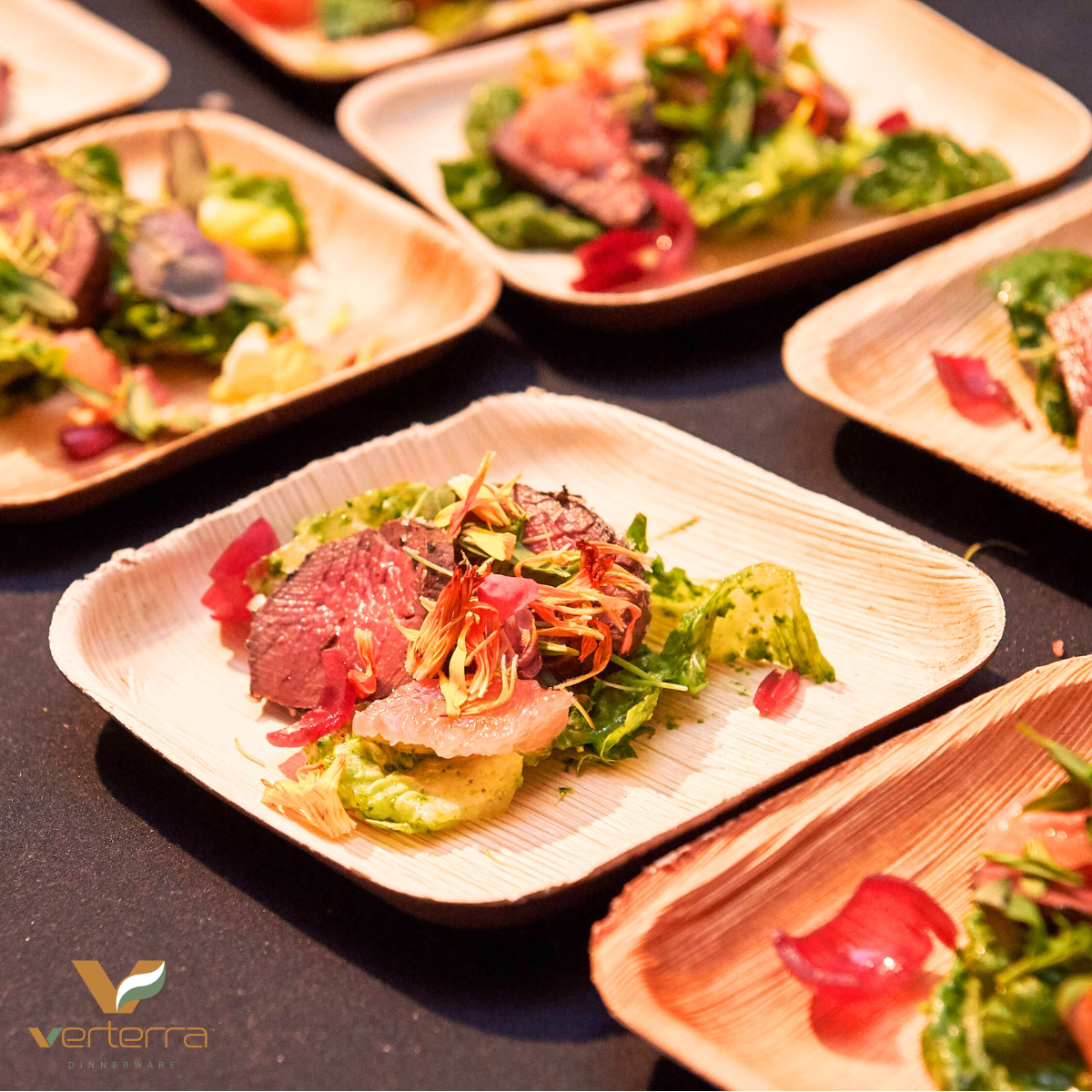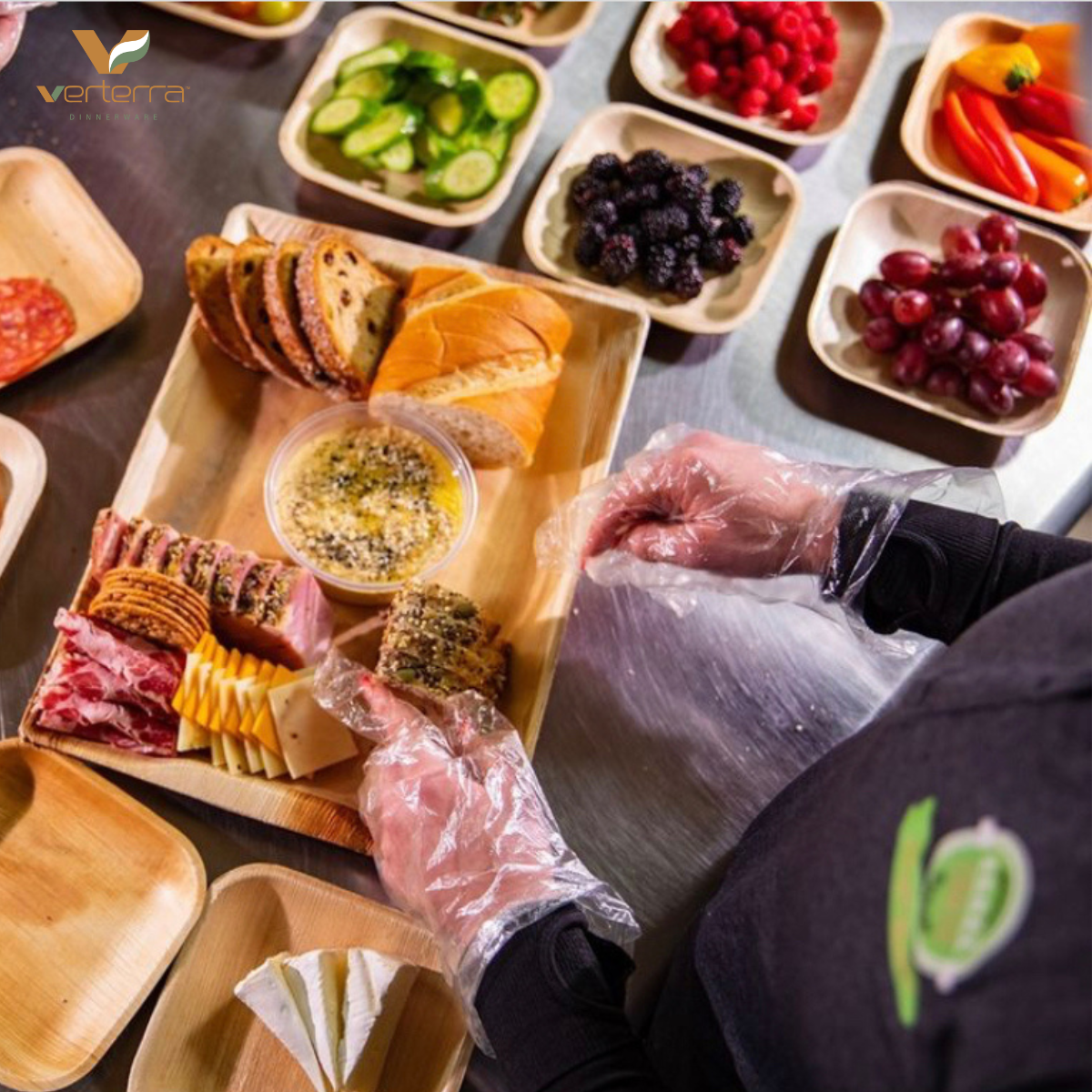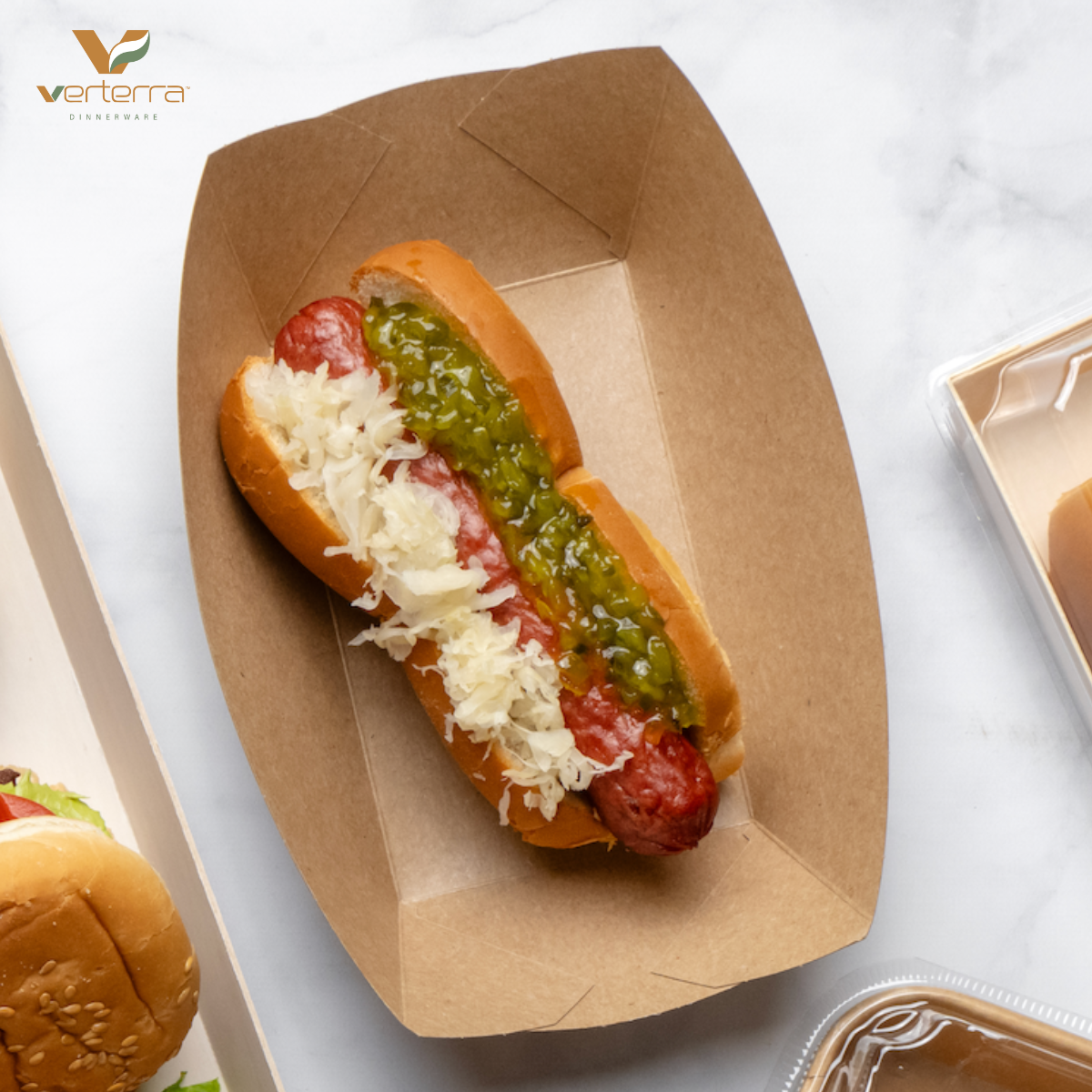
Palm vs. Bamboo Plates: Why Palm Wins for the Planet, But Bamboo Has Its Place
When it comes to eco-friendly tableware, palm and bamboo plates often top the list. Both offer compostable, natural alternatives to plastic or Styrofoam, but which one truly leads the charge for sustainability? In this article, we’re diving into the pros and cons of palm and bamboo plates, comparing their environmental impact, production processes, and ideal uses. Spoiler alert: palm plates come out on top for the planet when it comes to plates, but bamboo has its own shining moment too.
Palm Plates: Nature’s Fallen Hero
Palm plates are made from naturally fallen palm leaves. This means that no trees are cut down or even damaged in the production process—it’s simply a matter of using leaves that the tree naturally sheds. These leaves are cleaned, pressed into shape, and voila! You have a sturdy, biodegradable plate. The production process is remarkably low-impact since it doesn't require cutting down plants or using heavy chemicals.
This makes palm plates a hero for sustainability. Since they use natural waste material, there’s no need to worry about deforestation or soil degradation—issues that can arise with other types of natural tableware. Palm plates are also fully compostable, breaking down naturally in a matter of months if disposed of properly.
Another big perk is that palm plates are perfect for both hot and cold foods, thanks to their natural sturdiness. Unlike some disposable options, palm plates are strong enough to handle a hot curry or a serving of pasta without bending or leaking. Plus, they give your events a rustic, natural feel, which makes them a favorite for weddings and parties.
Bamboo Plates: Strong, Renewable, and Versatile
Bamboo, on the other hand, has built quite a reputation as a “super plant” in the world of sustainability. Bamboo grows incredibly fast—some species can grow up to three feet in a single day—and it requires very little water. When harvested responsibly, bamboo is a renewable resource that can be used in a wide range of products, from furniture to fabrics, and yes, even plates.
Bamboo plates are also a great eco-friendly choice, but their production process is a bit more complicated. Unlike palm plates, which simply make use of fallen leaves, bamboo must be harvested and processed into the desired shape. This involves cutting down the bamboo stalks, shredding them, and then pressing the material into plates. Though bamboo is renewable, harvesting it still has some environmental impact—albeit much lower than traditional wood harvesting.
Bamboo plates are known for their durability and can often be reused several times if properly cared for. This makes them a fantastic choice for those who want something sturdier and potentially reusable, rather than purely disposable. However, if you're looking for a truly disposable plate with minimal environmental impact, palm takes the crown.
Comparing the Environmental Impact
From an environmental standpoint, palm plates are the greener option for disposable tableware. Since they’re made from naturally fallen leaves, they have virtually no impact on the tree itself or the surrounding ecosystem. The production process uses minimal energy, and the plates are 100% compostable, which means they won’t be sitting in a landfill for decades.
Bamboo, while also biodegradable and renewable, requires harvesting and a more intensive production process. Harvesting bamboo, even sustainably, can still lead to soil disturbance, and processing it into tableware uses more resources than simply pressing a fallen palm leaf. Bamboo’s main environmental advantage lies in its renewability and the speed at which it can grow, but this is more relevant for products that require strength and longevity—like utensils or furniture—rather than disposable items like plates.
Bamboo Shines Elsewhere: Utensils and Picks
So, if palm plates are the better choice for eco-friendly disposable plates, where does bamboo really shine? The answer lies in its versatility and strength. Bamboo is incredibly strong and lightweight, making it an ideal material for utensils, skewers, and toothpicks.
Bamboo utensils are a fantastic sustainable alternative to single-use plastic cutlery. They’re durable enough to be reused multiple times, and they’re also biodegradable when they eventually reach the end of their lifespan. This makes them a great addition to any eco-friendly event, particularly when paired with compostable palm plates. Bamboo skewers and toothpicks are also popular choices, especially for catering and events, thanks to their sturdiness and natural look.
In these areas, bamboo’s qualities as a renewable resource truly come into play. It’s a great example of using the right material for the right purpose: bamboo’s strength and versatility make it a standout choice for items that need to be sturdy, while palm’s low-impact production makes it the better option for plates.
Conclusion: Making Smart Sustainable Choices
The key to making smart, sustainable choices is to consider the full lifecycle of the product. By choosing palm plates, you’re opting for a low-impact, compostable option that’s perfect for single-use situations. By choosing bamboo for your utensils, you’re supporting a renewable resource that can replace plastic and be used multiple times. Together, palm and bamboo can help you create an eco-friendly table setting that’s better for the planet—one smart choice at a time.
In the debate between palm and bamboo plates, it’s clear that palm is the better choice for the environment when it comes to disposable plates. The use of naturally fallen leaves makes for a low-impact, compostable option that’s hard to beat. Bamboo, while not quite as eco-friendly for plates, shines in other areas—particularly where strength and reusability are key.
So, next time you’re planning an event or stocking up on eco-friendly tableware, remember: palm for plates, bamboo for utensils. It’s all about finding the right balance to keep things green, practical, and sustainable.
If you're looking for high-quality palm plates made from fallen leaves, consider VerTerra Dinnerware. VerTerra offers a range of sustainable, compostable products perfect for your next eco-friendly event!
Also in The Dirty Dish

The Eco-Conscious Caterer’s Toolkit: Essentials for Modern Events
Clients are no longer just asking what’s on the menu—they’re asking how it’s being served. Today’s tastemakers want elegant, low-waste events that impress guests and align with their values. That’s where Verterra comes in.
In this blog, we break down exactly how to create a stunning, sustainable setup using just five compostable essentials. Whether you’re catering a backyard tasting or a high-end corporate soirée, this is your go-to guide for effortless eco-luxury.
🌿 Sustainable never looked so good.

The Ultimate Guide to Food Boats
Food boats are more than just a convenient way to serve meals—they're a game-changer for eco-conscious food service businesses. From casual cafés to high-end catering, these biodegradable, stylish, and durable containers offer a sustainable alternative to plastic. But not all food boats are created equal. Verterra takes it to the next level with their innovative, chemical-free designs made from renewable materials like kraft paper and balsa wood. Want to know why top chefs and event planners choose Verterra? Read on to discover the ultimate guide to food boats and how they can transform your food presentation while protecting the planet.

Sustainable Elegance: Why Verterra’s Covered Catering Trays And Grab & Go Trays Are a Culinary Game-Changer
If you’ve ever hosted an event, run a restaurant, or catered a wedding, you know how important it is to balance practicality with presentation. That’s where Verterra’s covered trays come in—a line of sustainable, compostable trays that deliver on functionality while looking absolutely stunning.
